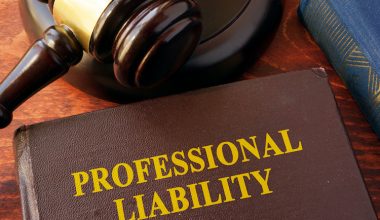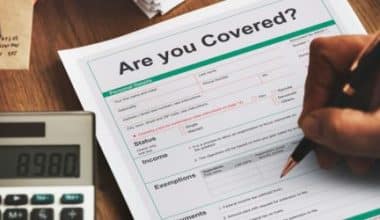Cleaning businesses face risks such as employees damaging client property, stealing from customers, or suffering injuries due to harsh chemicals. For this reason, cleaning-business insurance is recommended for owners of cleaning businesses in most cases. A certain amount of business insurance may be required by the state in which the cleaning business operates; additionally, clients might prefer to work with insured cleaners. The national average cost for cleaning-business insurance is $394 per month for a policy that covers all aspects of a cleaning business. All cleaning and janitorial companies should have business insurance — including general liability insurance, workers’ comp, and fidelity bonds — to protect their finances in cases like these
Cleaning Business Insurance
Cleaning business insurance are policies that cover the risks associated with your business and protect your assets and equipment. When searching for a policy, it can be helpful to compare prices and speak with a licensed Advisor. Cleaning business insurance is a specialized policy designed for commercial and residential cleaning professionals and businesses to protect them against the specific risks and liabilities of working on a job site.
Types of Cleaning-Business Insurance
Cleaning-business insurance isn’t a single product; it’s actually a collection of different types of insurance policies that cover different risk aspects of a business.
#1. Business Interruption
Following a covered event, businesses may have to pause their services while repairs to the building, automobiles, or machinery take place. This pause can interrupt the cash flow of the business, sometimes for months, which can be catastrophic. Business interruption insurance replaces a percentage of lost income during this time to help keep the business afloat while repairs are completed. The coverage can be used to continue paying employees or for temporary relocation and rent, so the cost of coverage will be based on the nature and size of the business and the likelihood that the business will be affected by a natural disaster.
#2. Business Owner’s Policy (BOP)
A business owner’s policy protects the owner’s investment in the business. Ideal for many small businesses, it’s a collective policy that includes general liability insurance, commercial property insurance, and business interruption insurance. The cost varies widely and is based on the type of business, number of locations, and any additional coverage that is necessary, but the average falls around $520 per year.
#3. Commercial Auto
Being out on the road is risky: Road hazards, inattentive drivers, speeding, and road rage incidents all threaten employees on their way to work, especially when the job involves traveling from site to site to complete a day’s work. Because of the nature of a cleaning business, the employees are often carting supplies and equipment with them, making mass transit or ridesharing impractical. As a cleaning business grows, it may become more economical for a business to purchase or lease vehicles for commercial use. In that case, the company will need a commercial auto insurance policy to protect the investment in the vehicles, the supplies carried in the vehicles, and the employees driving them.
It would be a good idea for business owners to investigate auto coverage for hired (rented) vehicles or non-owned (personal vehicles belonging to the employees used for business purposes) auto coverage to protect the business from loss. The cost varies based on the number and type of vehicles, but it often falls around $1,555 per year.
#4. Commercial Umbrella
Every insurance policy includes a coverage limit. The limit may be per event, per policy term, or per total payout. Depending on the nature and size of the business, an owner may feel the limits of their commercial policies are not high enough to cover their potential losses. When this is the case, a business owner will want to consider purchasing a commercial umbrella policy. This kind of policy adds coverage beyond the limits of any policies a business currently has in place to provide a wider range of coverage. The average cost of this coverage for a cleaning business is approximately $758 per year
#5. General Liability
This type of insurance protects a cleaning business from lawsuits and insurance claims stemming from bodily injury or property damage at an average cost of $45 per month or $530 per year. General liability insurance is particularly important for owners of a cleaning service. Employees are handling potentially expensive furniture, furnishings, flooring, rugs, and other personal items. If any of these items are damaged during cleaning, the home’s owner could file suit against the cleaning company for damages, and general liability insurance would provide coverage for such expenses up to the policy limits
#6. Janitorial Service Bond
There are several types of bonds available to business owners. Janitorial service bonds are the most appropriate type for a cleaning company because they cover several different issues. This kind of policy protects the business and the workers: If an item is lost and an employee of the cleaning company is blamed, the insurance policy protects the worker from being unjustly damaged financially without genuine proof of misdeed, and it prevents the business owner from mounting an expensive defense. With an average cost of only $100 to $150 per year, bond insurance for small businesses is a worthwhile expense.
#7. Workers’ Compensation
In a cleaning business, it’s somewhat more likely that injuries may occur during the course of their duties than they would in other fields. Working with cleaning chemicals, spending time on ladders, and using heavy cleaning equipment all provide plenty of opportunities for injury. When a worker injures in the course of working, workers’ compensation insurance will cover the employee’s medical care. Also, any lost wages to support the employee’s full recovery and protect the business from having to pay wages to someone who isn’t working
Best Cleaning Business Insurance
#1. Huckleberry
Huckleberry allows you to get a business insurance quote and buy a policy online in minutes. This insurance company doesn’t sell its own insurance policies, though, so you’ll have to deal with your policy underwriter’s claims department instead of Huckleberry if something goes wrong. Huckleberry offers a price estimate: Cleaning businesses have paid $62 per month and up for worker’s comp coverage and $55 and up for a business owner’s policy, the company says
#2. Next
You can get a quote and buy an insurance policy online from Next in a matter of minutes. Once you have a policy, you can add an additional insured with no additional charge and access your certificate of insurance at any time. And when you file claims online or over the phone, Next says many can be resolved within 48 hours. You can add tools and equipment insurance, which protects the tools your employees use, to a general liability insurance policy. But Next does not sell janitorial service bonds.
#3. Thimble Cleaning Business Insurance(cheap)
Thimble primarily offers general liability insurance for cleaning businesses and independent cleaning contractors. But if you want more protection, then the company won’t discourage you from getting professional liability insurance. Other cleaning business insurance policies offered are business owner’s policy and worker’s compensation insurance. Thimble’s price starts at $38 per month. However, you can also choose to get insurance for only hours, days, or weeks. Short-term insurance pricing starts at $6 per hour.
#4. USAA Cleaning Insurance(cheap)
If you’re looking for cheap cleaning business insurance, then USAA has the best prices on the market. Time and time again, they’ve been consistently ranked as the lowest-cost insurer in the United States. However, there’s one catch- you have to be in the military (active duty or retired) to apply.
Whether you need insurance for a house cleaning business or a larger commercial cleaning business, USAA can provide business owners with comprehensive and affordable plans that can’t be beaten by any other insurer on the market. They’re also well known for their respectful customer service, rewarding long-term members, and reliability.
#5. State Farm Cleaning Insurance
If you’re looking for reliable insurance for a home cleaning business, then State Farm is one of the best in terms of customer service. They have offices across the country which means that it’s relatively easy to get in contact with an agent and speak with somebody in-person, should the need ever arise. As far as pricing goes, State Farm is also quite competitive. Their cleaning business insurance and bonding cost are very similar to the rates offered by GEICO and Progressive.
#6. GEICO Cleaning Insurance
Geico also provides insurance for self-employed house cleaners, workers’ compensation insurance for cleaning businesses, pressure washing businesses, and just about any other small business you could think of. Generally, Geico is known for fair insurance premiums pricing, its easy-to-use app, and its overall versatility as an insurer. Geico has a strong history in car insurance, which makes them a great choice for commercial auto insurance if you have any company vehicles you need to insure (such as window cleaning van insurance). $46 per month
Cleaning Business Insurance Cost
The total cost depends on several key factors, including the type and amount of coverage, the type of cleaning business, the insurance provider, the available discounts, the number of people employed by the business, and the risk level of the business. The national average cost for cleaning-business insurance is $394 per month for a policy that covers all aspects of a cleaning business.
Cleaning-business owners can expect to pay less than this if they don’t opt for all types of coverage available, and more than the average if they add additional coverage to their policy. That may seem like a high amount, but it’s peanuts when you compare it to the amount a business owner may need to pay out if they or an employee of their company are responsible for damaging a customer’s property or causing a car accident while driving a company vehicle
Factors in Calculating Cleaning-Business Insurance Cost
#1. Coverage Type
Purchasing insurance for a business isn’t a one-size-fits-all proposition; actually, there are a surprising number of different types of insurance policies. The types will be familiar to many people who have had to purchase homeowners insurance, as some of the policies (property, auto, liability, and umbrella) are similar to those someone might purchase for personal use.
Each of these types of insurance comes at a cost, so the total cost of the insurance will depend on what combination the business owner deems necessary.
#2. Coverage Amount
When purchasing an insurance policy, the carrier will often offer predetermined coverage limit options—in other words, the maximum the company will pay for each covered event over the course of the policy period. The business owner can select what they feel is an appropriate amount of coverage, and the premium charge will adjust accordingly.
Therefore, if the owner chooses the lowest coverage amount, the cost of the policy will be lower than if they had chosen a higher coverage amount. Business owners can use this selection to scale their overall costs based on how much risk they’re comfortable with: If they pay a little less upfront and need to file a claim, they may receive only a small amount of cash for their claim; however, they keep the additional premium amount in their pocket. This is a risk some business owners are willing to absorb to keep costs in check.
#3. Business Type
Risk is a huge driver of insurance prices because insurance companies need to take in more in premiums than they pay out in claims. Therefore, the insurance companies will assign a higher cost to business types they feel are more likely to file claims or businesses whose claims will be higher in cost. Each insurance company will have its own rubric to determine the cost based on risk, but this is outside of the business owner’s control.
#4. Insurance Provider
Because each company has its own formula for determining cost, it’s very important that potential policyholders compare quotes from different companies before choosing a policy to buy. The total cost can swing quite widely from one company to another, and sometimes it’s tricky to compare the estimates, as different companies may bundle and package types of insurance together, which can make it tough to identify exactly what is being quoted
#5. Number of Employees
A business can price some types of insurance, such as workers’ compensation coverage, either individually or in blocks for businesses, with the cost depending on the number of people the policy is to cover; more people translate into a greater risk for injury and payout. Larger companies will pay more for workers’ compensation insurance, but also for liability, umbrella, business interruption, and bonding insurance because of the increased risk.
#6. Risk Level
The claims history is part of the risk level assessment that determines the premium cost. Other parts include the type of work the business does, the area and any threat of natural disasters and fire, the amount of travel and number of employees driving company vehicles, and, of course, the trustworthiness of the employees
Do I Need Liability Insurance for My Cleaning Business?
Generally, states don’t require businesses to carry general liability insurance. However, most cleaning businesses can benefit from a general liability insurance policy. Bodily injuries and property damage can happen during normal business operations.
Some clients may also require you to carry liability insurance before agreeing to hire your small business. You can give them a certificate of insurance to prove you have coverage.
How Much Is Insurance for a Cleaning Company?
The median price of general liability insurance for a cleaning business is less than $45 per month or $530 per year
What Does Cleaning Business Insurance Cover?
Cleaning business insurance protects your company and assets in case of the unexpected, including natural disasters and claims of property damage. Cleaning companies face certain risks including, but not limited to:
- Employees getting hurt or sick on the job.
- Employees accidentally break or damage client possessions.
- Employees stealing from clients.
- Company vehicles getting involved in traffic accidents
What Type of Bond Do I Need for a Cleaning Service Business?
Janitorial bonds
A janitorial bond is a type of surety bond that reimburses your clients for employee theft. Unlike insurance, your bond carrier (surety) will expect you to pay them back for any claims that are paid. Clients often ask residential or house cleaning companies to secure this bond by clients
Where Can You Get Cleaning Business Insurance?
The best cleaning business insurance company for you will depend on your needs. For fast coverage, consider a business insurance company that sells policies online. Every company will probably give you a slightly different business insurance quote since they all calculate premiums differently. Getting quotes online can make it easy to compare costs before you choose the best option for you
Who Needs Cleaning Services Liability Insurance?
At the bare minimum, every cleaning company needs general liability insurance. No matter what type of cleaning business you own, yes, you need to insure in order to protect yourself, your livelihood, and your employees. This basic coverage typically protects the business from claims of property damage, bodily injury, and personal injury.
Conclusion
Cleaning businesses come with a moderate amount of risk; there are certainly some risk factors when dealing with cleaning solvents, ladders, windows, wet floors, and heavy machinery, but it isn’t a particularly high-risk field. On the other hand, cleaning businesses may be subject to claims or lawsuits if furniture, flooring, or soft furnishings are damaged during cleaning, and from time to time even the best cleaning services may be accused of stealing or losing objects of value.
Because of these risks, there are certain types of coverage that are particularly important for cleaning businesses, such as janitorial bonds and umbrella coverage. Companies determine the total cost of this coverage by examining a number of factors and creating a total picture of the risk and selected benefits as the business owner decides how much they’re willing to pay versus how much they’re willing to lose. A good commercial insurance agent should be able to provide wonderful guidance to a business owner who is shopping for insurance
Related Articles
- HOW TO START YOUR OWN CLEANING BUSINESS: The Ultimate Guide
- HOW TO START A CLEANING BUSINESS IN 2023: Detailed Guide
- 8 Things a Cleaning Contract Must Include
- HOW TO START YOUR OWN CLEANING BUSINESS: The Ultimate Guide
- COMMERCIAL AUTO INSURANCE NEW JERSEY: The Ultimate Guide






